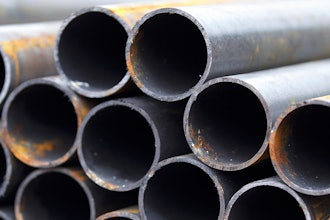There is lot of buzz about the importance of education and secondary education in our nation these days. It can’t be denied that the majority of education promotes better paying jobs and career opportunities for students. As college is becoming more and more common, many people are second-guessing the value of an education beyond high school (especially with the disproportionate rise in tuition). There has been an emergence of a new type of education, or rather a new format: the concept of Technical Education High Schools (TEHS).
These types of high schools are popping up all over our country and they are creating a new buzz about secondary education. Essentially, these high school ‘trim the fat’ on education, and get students set on a career path very early. These schools are often directed toward area industries. For instance, northeast Indiana ushers tech-high students to careers in industrial manufacturing, mainly in the medical manufacturing world.
Many people say, “Good for Indiana, creating jobs and quality employees.” While this may be accurate, the question that begs to be asked isn’t easy. Yes, it might be good for local economics, but is it good for the students?
These schools are dangling a guaranteed $17 per hour carrot, in front of the students. Some students are perfectly fitted for this technical skill set and working a manufacturing or fabrication floor, but it can’t be denied that this might lead students away from a college education.
There is an integral benefit to giving kids the opportunity for technical education early on in their careers. Take programs like FIRST, which PD&D has covered. Early exposure is essential to the molding of proper engineers and STEM students, but the problem comes when these students are pigeonholed. They are put on a path, and left to stay the course.
Say that a promising science and math student takes great interest in the manufacturing of medical implants, so he enrolls in a TEHS to get more exposure. He completes his high school classes (training essentially) and prepares for life as a working stiff. The problem is that the quick score of a decent paying job right out of high school can trump his education. Suddenly, this promising young engineer is satisfied on the manufacturing level. There is nothing wrong with this, except that if he had enrolled in higher education he could be designing those implants, rather than simply manufacturing them. Mike Collins recently wrote an editorial called Is a Manufacturing Career a Good Option for Young People?, which covers this topic as well.
The issue here is the lack of knowledge and experience of a high school student. Students are not equipped to choose a career at age 15. Just 7 years earlier, they probably wanted to be a doctor, teacher, firefighter, mail man, and astronaut all at once, while becoming a rockstar in their free time. My interests have had many different ebbs and flows since my days in high school, and I’m sure yours have too. A broad exposure to subject areas and the challenges within them is incredibly important in both high school and college, so why pick a profession at 15?
I’m not trying to talk down about these emerging high schools. To the contrary, I’m a big advocate of them, but we must remember to walk the line of influence carefully. Young minds can easily be coerced with instant gratification (most of us have been at one point or another), and it is important to keep young minds broad as we expose them to the coolness that is engineering.
What's your take? Email [email protected] or comment below.






















